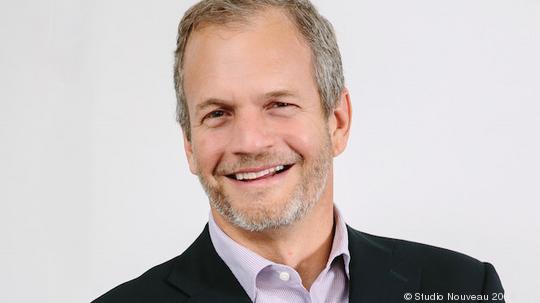
Indigo has recently had a strong run. The Boston-based agtech startup, whose microbiome technology is making crops more resistant and sustainable, just raised $100 million Series C funding. At the same time, the company announced the launch of its first commercial product called Indigo Cotton that has already been planted throughout more than 50,000 acres in the U.S.
What's behind Indigo's success so far? We spoke to David Perry, the company's CEO, to find out the strategy driving its innovation and garnering support from investors.
Olivia Vanni: You also just announced the launch of your first product: Indigo Cotton. Which environmental factors does it address to make crops heartier? What do you think the impact will be?
David Perry: We think that the technology, the approach we’re taking to use microbes in agricultural crops will ultimately apply to lots of different things. It will help plants use water more efficiently, grow better with less nitrogen, grow better in salty soil and be resistant to insects and other diseases. But we’re really early, so this first product is helping the first of them, which is to help plants use water more efficiently. That’s good for the planet, obviously, but it’s also really good for the farmer because the result of that is improved yields and greater profitability for them.
OV: How does it work?
DP: We actually embed microbes to the seed with a coating, so we’re literally recolonizing the plant with beneficial microbes. As background, most modern seeds get coated with something before they go into the ground, so the idea of coating a seed isn’t unusual to the farmer or to the industry.
We’re just adding a microbial coating, and then when the seed germinates and becomes a plant, those microbes are taken up by the roots and then they multiply inside the plant. Essentially, what we’ve done is colonized the plant with beneficial microbes by adding them to the seed before it’s planted.
OV: What was the thought process behind targeting water scarcity before other environmental factors affecting crops?
DP: We started by thinking about what problems we should solve first and we chose water stress for two or three reasons. The first is that it’s a big problem that every farmer faces. Every farmer has their yield reduced or their cost increased because of water, so if we could solve that problem for farmers, that would be beneficial to them.
The second reason is that it’s important to the planet… We’re already using more water than the planet can sustainably provide. We’re basically pulling down on reservoirs of water, and that problem is going to get worse as the population grows unless we take steps to modify things. Since agriculture consumes about 70 percent of the fresh water, this is obviously a good place to start.
The third reason is existing technologies can’t solve this problem. It’s always nice when you’re launching a new approach to be able to address a problem existing technologies don’t solve. There’s really no chemistry you can spray on a plant to have it use less water.
So we’re doing something that’s important to the farmer, important to the planet and that there aren’t good solutions out there to do the same thing.
OV: Indigo Wheat is the next product you’re developing. How did you zero in on these two crops first?
DP: Now, if that’s the problem you want to solve, the obvious thing would be to go to the driest places in the country where the problem is the biggest. That tends to be West Texas and the western Midwest - so Oklahoma, Kansas, Nebraska, Colorado - all of which, year in and year out, face a significant amount of water stress. The crops grown in that region are primarily cotton and wheat, which led us to our first two crops.
OV: What do you think has garnered so much support for Indigo? What does it mean for the agtech sector?
DP: There’s a lot of opportunity for innovation in agriculture and an increasing number of approaches to improve agriculture. We welcome all of them. This is much too big of a problem for us to fix on our own. We need many successful companies focused on agricultural technology - and probably many successful companies focused on microbiology and agriculture, specifically.
The advantage that we have is a head-start on the technology side. We’re already seeing results that others haven’t been able to demonstrate. That’s certainly part of the reason. I think we have a commitment to build a large and meaningful company. To make that commitment, you have to invest a lot of money in R&D, you have to be willing to hire really talented (which means expensive) people and build a world-class organization. That sort of commitment we have found attractive for investors as well.
OV: With more funding in hand, which milestones are you looking forward to next?
DP: We’re primarily investing the money in three things. One will be expanding our R&D efforts. Most companies go through an S-curve of innovation, where things proceed slowly at first, it becomes really steep and then it tapers off or plateaus. We’re still in the pre-steep part. There’s a lot to learn, so we will significantly increase our investment in R&D.
We’re increasing our investment in product development. We’re currently testing in 12 different crops, across multiple stresses, with the intention of bringing many products to market over the next two years.
We’re investing in people. We believe that this approach is the most important new technology in agriculture. If that’s true, it should create a business worth billions or tens of billions of dollars, and we’re trying to hire the team who’s capable of running that size of business.








